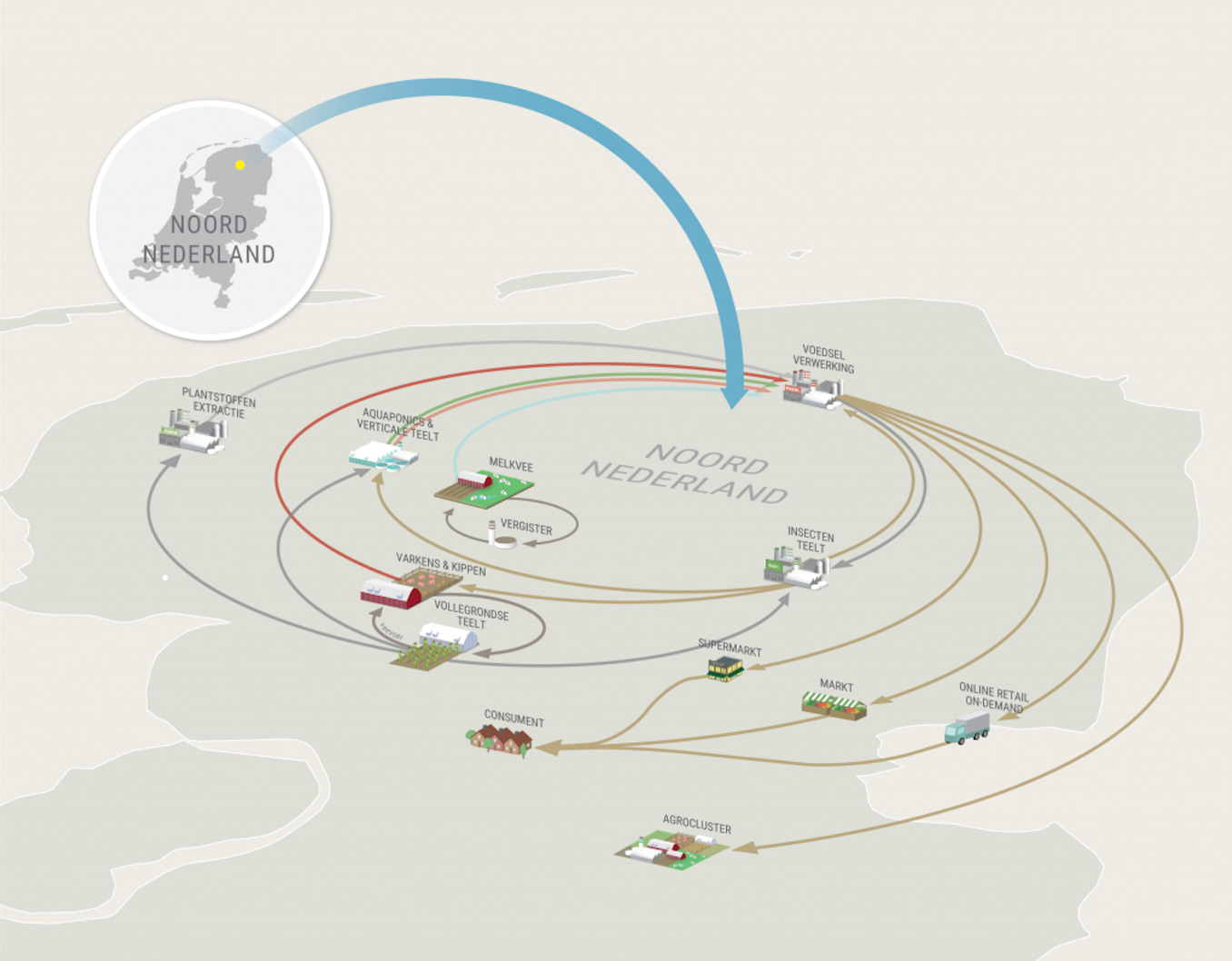The local governments and businesses of the north of the Netherlands have started taking steps towards making it the most prominent region in the country for developing a circular economy. Metabolic is working with three northern provinces to design an extensive roadmap for how they can work together to achieve a sustainable future.
Metabolic has worked on a range of projects across the Netherlands that have helped cities and regions to understand and act on the circular economy. One of our standout programmes was in the northern province of Friesland where we worked with Urgenda to identify the opportunities of the circular economy and empower the whole community to take these ideas forward. Friesland is now demonstrating that the circular economy is not just a concept but a tangible economy in action, which allows companies to make a profit in a sustainable way and create jobs.
The success there means Metabolic will help expand the approach and roll it out to include the two neighbouring provinces of Groningen and Drenthe. We’ll be working with the consulting firm KNN – which complements Metabolic through its expertise in the biobased economy and its established northern network – to help the three provinces collaborate on a shared circular vision and action plan, as well as to identify additional business opportunities and to support industries within the regions to adopt circular strategies.
The region is particularly interesting for analysis due to a number of unique geographical and socio economic characteristics. The region’s building sector is strong and innovative: because the province of Groningen suffers from earthquakes due to the extraction of natural gas, building companies have pioneered earthquake-proof buildings. The potential for innovation in green chemistry is also large, with several large industrial areas home to chemical businesses along the coastline (especially concentrated in the Groningen Seaports industrial area), and the potential to develop biobased industries is supported by the large amount of agriculture in the region, especially from potatoes and sugarbeets. It also differs from some other regions due to demographic shrinkage and ageing populations, which means that additional employment opportunities in high-tech and green businesses, that emerge from the adoption of circular strategies, could be a welcome addition to the region’s economy.
The work to lead the Netherlands regionally is assisted by some great initiatives towards the circular economy that are already underway – these include the knowledge sharing platform Noordelijk Innovatielab Circulaire Economie (NICE) and the Circular Friesland Association, which continues to help drive the province’s transition. It is also supported by national agreements such as the Grondstoffenakkoord, which outlines the country’s commitment to a circular economy by 2050.
In developing a roadmap for the three regions, we we will be building on this great foundation and looking in detail at four material-intensive sectors – agriculture, construction, chemicals and waste-management. We will examine the characteristics of these sectors, mapping the material flows across them in detail and seeing how local companies can work together to achieve synergies that reduce their environmental impact by decreasing their primary material demand, and by better utilizing the value of their waste streams.
Over the summer we will work with KNN and a range of representatives from the local governments, as well as businesses from across the four focus sectors, to build a clear path towards increased circularity and to help these organizations to understand how to make it a practical reality. We look forward to sharing the full details of what the project discovers, and what it will lead to, later in the year.
Metabolic senior consultant Gerard Roemers said: “We are really pleased to be building on our partnership with Friesland. It is very encouraging and exciting to see such commitment to the circular economy from these three provinces – they are really leading the way. We hope that this will inspire others and trigger similar commitments in other regions. Between resource pressure and climate pressure, there is simply no way our current linear economic model can continue. The shift towards a circular economy – that combines thriving economic development with ambitious sustainability goals – is both inevitable and necessary.”
For more information on our work in Friesland, read the full report or learn more about Circular Friesland on their website here.
For details of Metabolic’s urban and regional metabolism services, that help governments and regional organizations to understand and act on the opportunities of the circular economy, see the brochure.

Northern province governments and business representatives celebrate the kick off of the circular economy project.






